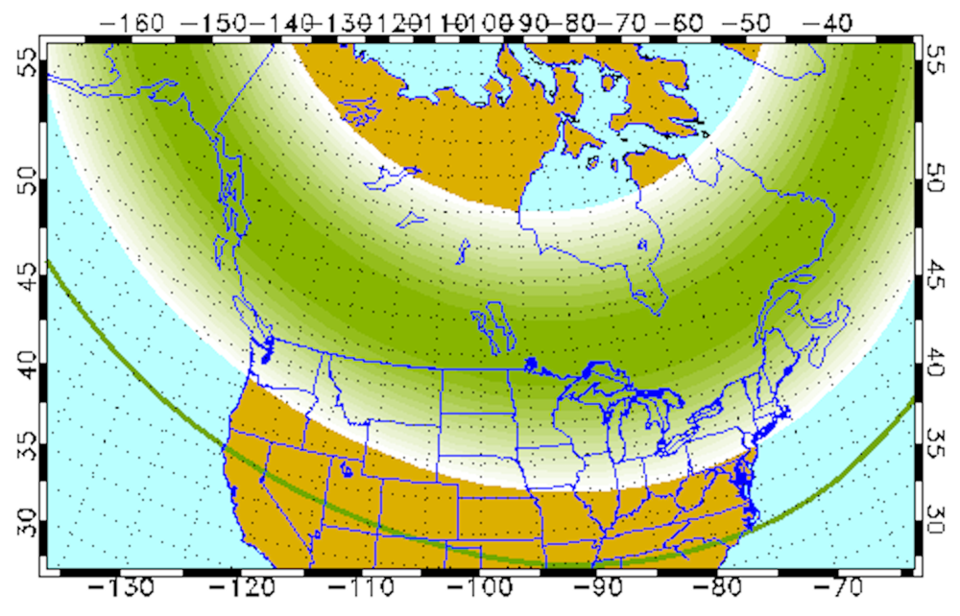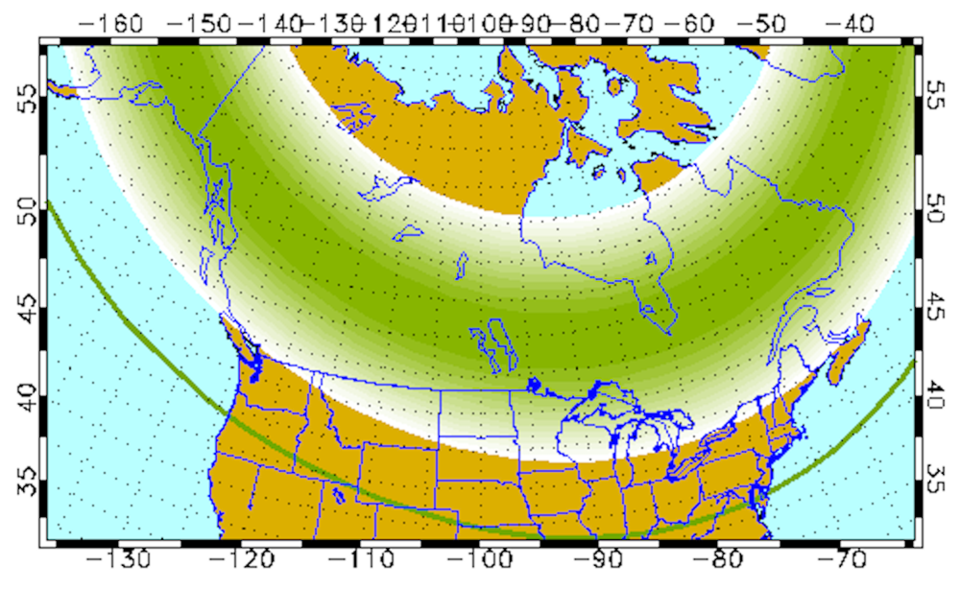Metro Vancouver stargazers, rejoice!
While the forecast calls for periods of rain tonight, Friday night's forecast looks decidedly clear. And that's good news if you are hoping to see in the northern lights in local skies.
According to the University of Alaska Fairbanks, auroral activity will be highly active on Thursday, Dec. 10, with displays possible overhead " from Inuvik, Yellowknife, Rankin and Iqaluit, to Portland OR, Cheyenne, Lincoln, Springfield, and New York City, and visible low on the horizon as far south as Carson City, Oklahoma City, and Raleigh."
 Photo via University of Alaska Fairbanks
Photo via University of Alaska FairbanksOn Friday, Dec. 11, the forecast also calls for high auroral activity, which the university says, "will be visible overhead from Inuvik, Yellowknife, Rankin and Iqaluit to Vancouver, Helena, Minneapolis, Milwaukee, Bay City, Toronto, Montpelier, and Charlottetown, and visible low on the horizon from Salem, Boise, Cheyenne, Lincoln, Indianapolis and Annapolis."
 Photo via University of Alaska Fairbanks
Photo via University of Alaska FairbanksGeomagnetic Storm
According to the National Oceanic and Atmospheric Administration, a G3 (Strong) and G2 (Moderate) geomagnetic storming is possible on Dec. 10 and Dec. 11 respectively due to a "possible inbound magnetic cloud from Dec. 7."
In order for us to see the aurora, the sky must be dark and clear; clouds are the biggest obstacles to auroral observations. However, Vancouver's forecast calls for clear skies Friday night, which means stargazers have the ideal conditions for a spellbinding celestial show.
Stargazers should opt to travel as far away from city lights as possible in order to avoid light pollution that will obscure the clarity of heavenly bodies. While this works best in more remote places, anywhere that has a higher elevation will also provide more ideal viewing conditions.



